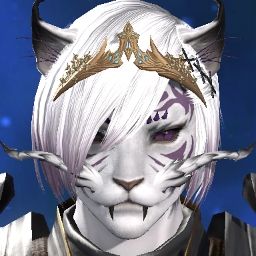For FF14, it's as XiRon said. The whole game has been a war story, but some areas more than others. We cannot compare the likes of Bozja and Ala Mhigo to Gridania and Ul'dah. Conflict has been the main motivation for FF14 as a whole, but the war aspect of the conflict is only really felt in key areas. Even if we consider "Us vs Ascians" as a war, it's not the gritty trench war for independence and survival as those were, but a proxy war of events which culminated in changes of the status quo and mass destruction. So focusing on the areas that we can compare, we have three we can compare to Bozja: Ala Mhigo, Doma and Werlyt. The overlaps are as follows. Both Werlyt and Ala Mhigo involve human experiments like Bozja does. Ala Mhigo's cultural identity was usurped to serve the Empire and further humiliate the country, which also happened in Bozja, particularly with the Gunbreakers. And Ala Mhigo's resistance was holding out in key minor areas with a lot of setbacks until external aid was provided. Just like Ala Mhigo, Bozja also suffered its fair share of back and forth. In terms of emotional impact and displays of duress during the story, Ala Mhigo shows us a curb-stomp massacre to demotivate the resistance, and we know of several issues from third-hand sources, such as Fordola's parents being the catalyst which led to her forming the Skulls. Doma also saw the bringing down of the figurehead, which was monarchical, and was beloved by a fair group of people. Ala Mhigo doesn't fully share this, as the monarchy's outlook was weakened by deranged dictators. Bozjans lost their queens.
On their own, these aspects are fine for a gritty war story. However, Bozja has striking differences that then come into play. The biggest flaw is that of time. Werlyt's story was simpler and with far less nuance, allowing the dev team to passingly brief you on the place itself, and focus on the emotional plot between Gaius and the kamikaze kids. Ala Mhigo and Doma both shared an entire expansion which tried its best to characterize the world, the people we interact with and all the stuff in them. Bozja's main conflict goes on between Misija's motivations. It has to 1 - present Misija to us and the environment she came out of, the environment she's currently in and the environment she wants. 2 - Provide enough background on the setting to justify the first of the environments she lives through. 3 - Characterize the bad guys and their endgoal. 4 - Provide us with Misija's actions and their fallout. 5 - Retaliation and subsequent closure.
And sure, it does that, but it does it in such an awkward way:
1 - Misija's story isn't the only one we're there to explore. We go there for multiple reasons both in-game and out. We go there for the Gunnhildr weapons. We go there to find out more about Bozja itself. We go there to help the resistance and make their new Blades prove their worth. Misija's plot usurps all of it.
2 - While the caste system being introduced to us, we're only told passing tales of it. We see none of it. Misija's word that she's mistreated for me fell flat when she really only had a couple nasty comments and she didn't stand up for herself. We had nothing to characterize the main lore point of the Hrothgar at the time: the Queen society. NOTHING. So Misija coming out with her being of a lower caste and suffering from it, when really she's been actually helped by Garleans, doesn't help. Like, good for her, fight against a nasty regime... BUT there's no evidence that that actually went on. If anything, her being oblivious to other people actually caring for her kind of made me feel like her characterization of her upbringing was overblown and overly dramatic. TLDR: she was whining, and it really felt things weren't as bad as they used to be, what, five thousand years ago? And it sure as hell didn't make her actions feel understandable (understanding =/= justifying, mind you), whatsoever. Fordola's actions I understand. Misija's actions? Whining.
3 - Rushed bad guys who only show up here and there to provide an ensemble of antagonistic figures for us to fight. The only two that actually were successful at it were Menenius and Lyon, yet we had Sicinius, we had Albeleo, we had Gilbrisbert, Pepega and Alcreamie or whatever their names were. The bad guys in other parts of the FF14 MSQ felt impactful and fleshed out, and at worst there was material on them to justify why we should care. These guys are just dipsh*ts we fight in FATEs and beating them up doesn't feel impactful nor cathartic. Especially not when most of the worst ones survive scott-free!!
4 - Misija's actions are easily the most problematic in all of Bozja when compared to other stories in the game. Zenos is impactful because he kills people wantonly and has gravitas, his entire existence is a foil to US. Fordola's characterized by her antagonism toward Lyse, and Yotsuyu is that toward Hien and Gosetsu. Even Valens's actions go more than hurting children and a couple hundred nameless mooks; they go against Gaius. What do Thordan, Niddhogg, Gaius, even bleeding Livia have? Establishing moments that make their actions feel impactful and hit us, the player characters, even if indirectly via our friends. The Blades were not established at all past a page telling you where they came from, so the emotional connection there was greatly lacking. And then her establishing moment, summoning Gunnhildr and fusing the Blades felt rushed. An outright slap on the face on what we had just then established in the plot: that Tempering can be reversed.
5 - The retaliation is a singular move that captures Misija and then we kind of don't do anything with her. We don't talk to her, we don't try, SHE doesn't try... And we move on to something shoehorned in: Allagan Diabolos. SIS WHERE????
Then the closure is just. "Curtains fall, ding dong the witch is dead". It doesn't feel satisfying in the slightest. Even freaking Livia had a more satisfying downfall...
And at no point do her actions feel like they had consequences which affected us. It barely inconvenienced the resistance anyway. No one mourned the loss of the Blades!!! THE HELL. They all just move and manage to beat up FATEs in Zadnor just fine without them!
Noraxia? Haurchefant? Tesleen? Hell, remember how Matsya got everyone quaking their pants? Even Gaius's kids dying had an emotional impact and it wasn't on the WoL directly, but it made us players feel something. What did the Blades do other than "o wow"?
And more so than time, those places had enough for us to explore and see. Even Ala Mhigo, who was war-torn, had something for us to see. What we got out of Bozja were two blasted zones and an underground temple with minimal context. While for the purposes of the war that's sufficient, it's not enough for it to characterize the culture that lived there. And given that a) that culture was recently introduced and b) is in dire need of content, it is greatly insufficient. The war is good to characterize the current setting for the place right now, but a race isn't just the current setting. It has an entire culture and lore behind it, and loose mentions that "Oh Allagans were here" feel incredibly shoehorned in.
Their biggest characterization is specifically related to the Queens and their former caste system. One they've now abandoned... which, on one hand, great, on the other hand, is LAZY. We didn't get to learn jack all about them, they're effectively loreless now. That is LAZY WRITING.
And then you have the Matsuno games.
- FF12 outright starts with Vaan's brother being introduced as a playable character and dying on the spot. Then we proceed to play as his little brother and see how life changed for him, leading to him being the anchor to ground Ashe who was about to Deus Vult the empire out of grief and wrath. We see Cidolfus's misunderstood madness and how it affected Balthier to be the distanced man he is. We see how A CHARACTER WHO IS LIKE MISIJA, Noah\Gabranth, gets motivation to pursue a dark path and what it entailed in the end, and how it affected his own brother who opposed him.
- FFT shows you how the struggle for power blinds everyone. And there is a huge discourse early on about chaste difference, about how even if you're helped by those with privilege, it doesn't make you one of them and you still suffer. How you're still forced to prove your worth but it doesn't amount to anything. Delita learns that the hard way once Tietra dies at the hands of Argath, a supremacist, setting him down on a path to cruelty and manipulation to rise in the ranks through underhanded methods. Misija told us as much, but we only see bad comments once and she flips. We don't see the escalation, we're only told about it in a passing way.
- Vagrant Story is a pretty simple game. It's nothing but you going around a singular town, nothing more. But there's so much to that town, so much to the characters you interact with and the plot keeps growing as you progress and works with the elements it established. At no point did you have sudden Allagan Diabolos out of the wazoo. And everything about your characters is given to you so that, in the end, it feels comprehensive.
- And trauma is very much present in Tactics Ogre LUCT. Especially Lanselot Hamilton, who we end up finding catatonic in the hospital, completely unresponsive... except for one thing. It's established early on that this guy is idealistic and wide-eyed, even after having lost his wife. He attempted suicide, but her music box helped him find resolve. He is garrisoned by one of the factions and tortured, leaving him in that state, and if you play the music box for him, he freaks out and starts screaming in terror because it was used by the antagonist to torture him. It's so simple, yet it's effective.
Matsuno's stories are dry and boring, I get it. But they're also slow burners, and that's because he actually cares to slowly introduce you the problems before the bubble pops.
Bozja just doesn't do this. It hard-focuses on rushing a plot that really shouldn't have been rushed. The dialogue was lacking, the actions contradictory and the ending unsatisfying.
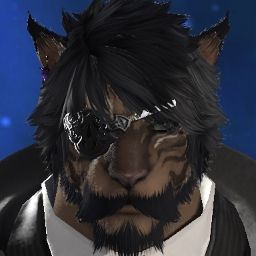
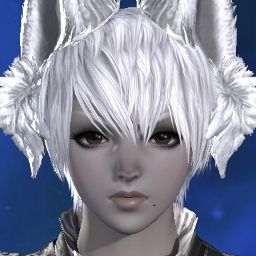


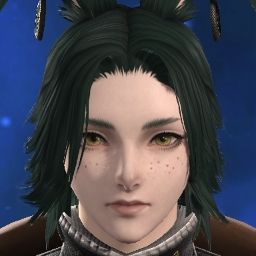


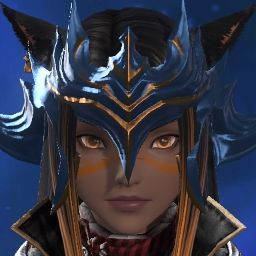
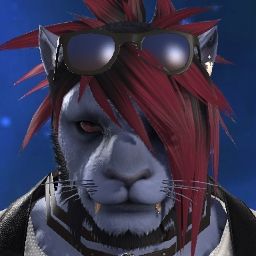


 Reply With Quote
Reply With Quote


